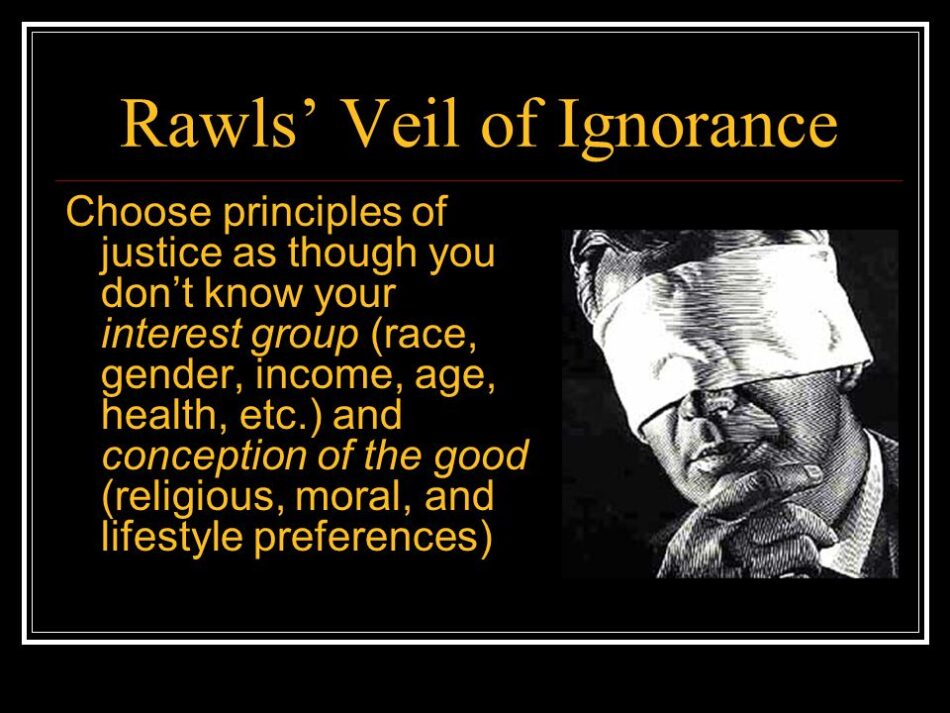
Choose principles of justice as though you don’t know your interest group (race, gender, income, age, health, etc.) and conception of the good (religious, moral, and lifestyle preferences)
The veil of ignorance is a useful theoretical tool because bias toward oneself can potentially subvert understanding of social justice.
From the Cambridge English Corpus
Michael Sandel often refers to the “veil of ignorance” as a concept introduced by the philosopher John Rawls. The idea is foundational in discussions about justice and ethics.
The “veil of ignorance” is a hypothetical situation where people are asked to make decisions about society without knowing their own position within that society. Essentially, they are behind a “veil” that prevents them from knowing their gender, social status, wealth, talents, or any other attributes that might give them an advantage or disadvantage in society.
The reasoning behind this concept is that if individuals don’t know their place or status in society, they are more likely to make fair and impartial decisions. It helps eliminate biases that could arise from self-interest or personal advantage. People would then strive to create a fair and just society because they wouldn’t want to risk being in a disadvantaged position once the veil is lifted and they discover their true place in that society.
Sandel often discusses this concept to prompt thinking about what principles of justice people would agree upon if they had no knowledge of their own circumstances. It encourages considering fairness and justice from a neutral perspective, without the influence of personal biases or advantages.
“When the veil of ignorance disappears,” in Sandel’s context, could refer to the moment when individuals are no longer in that hypothetical situation and become aware of their actual place in society. At this point, the decisions made behind the veil of ignorance could influence or affect them directly. The idea is that decisions made under the veil of ignorance should ideally lead to a more just and fair society for everyone, regardless of their circumstances once the veil is lifted.